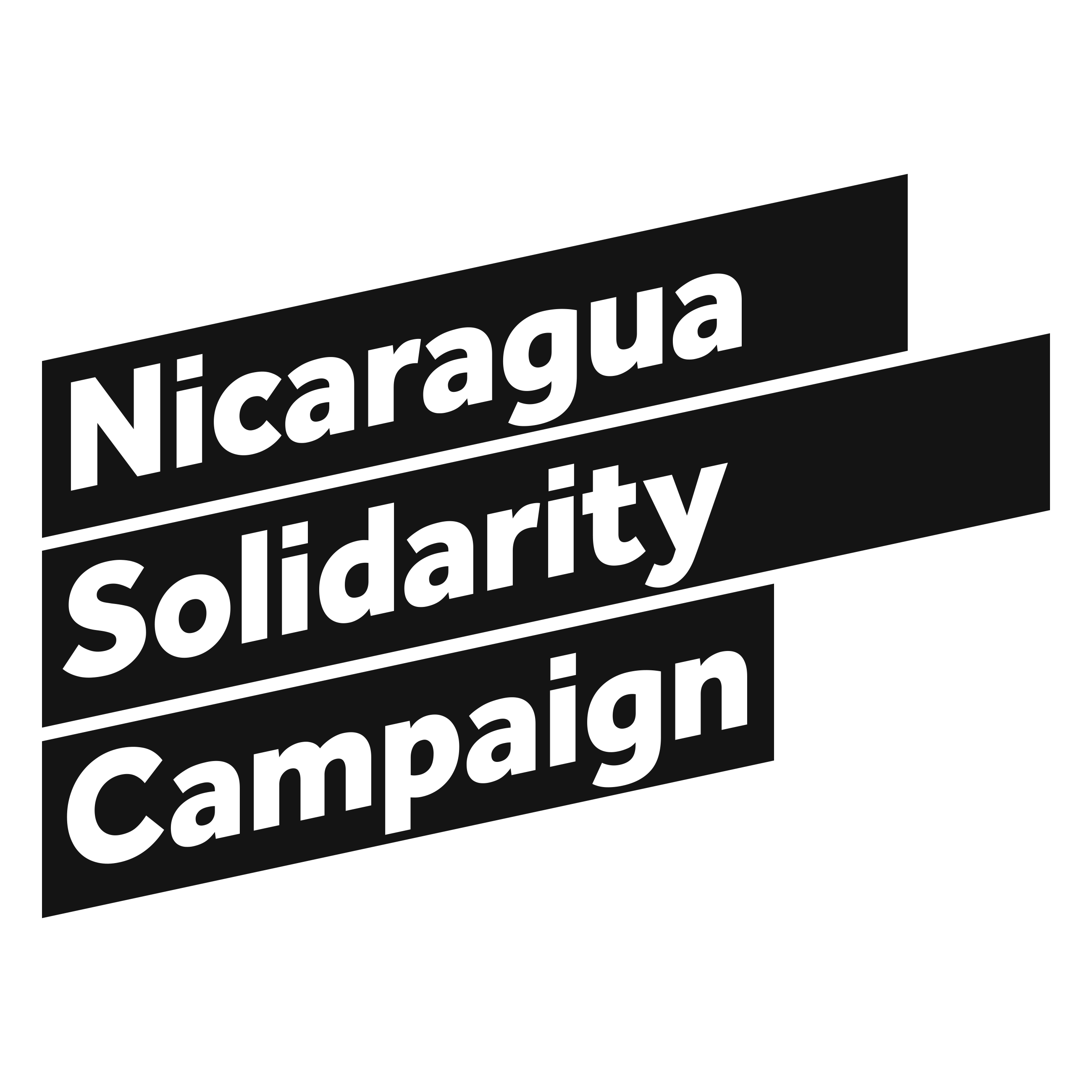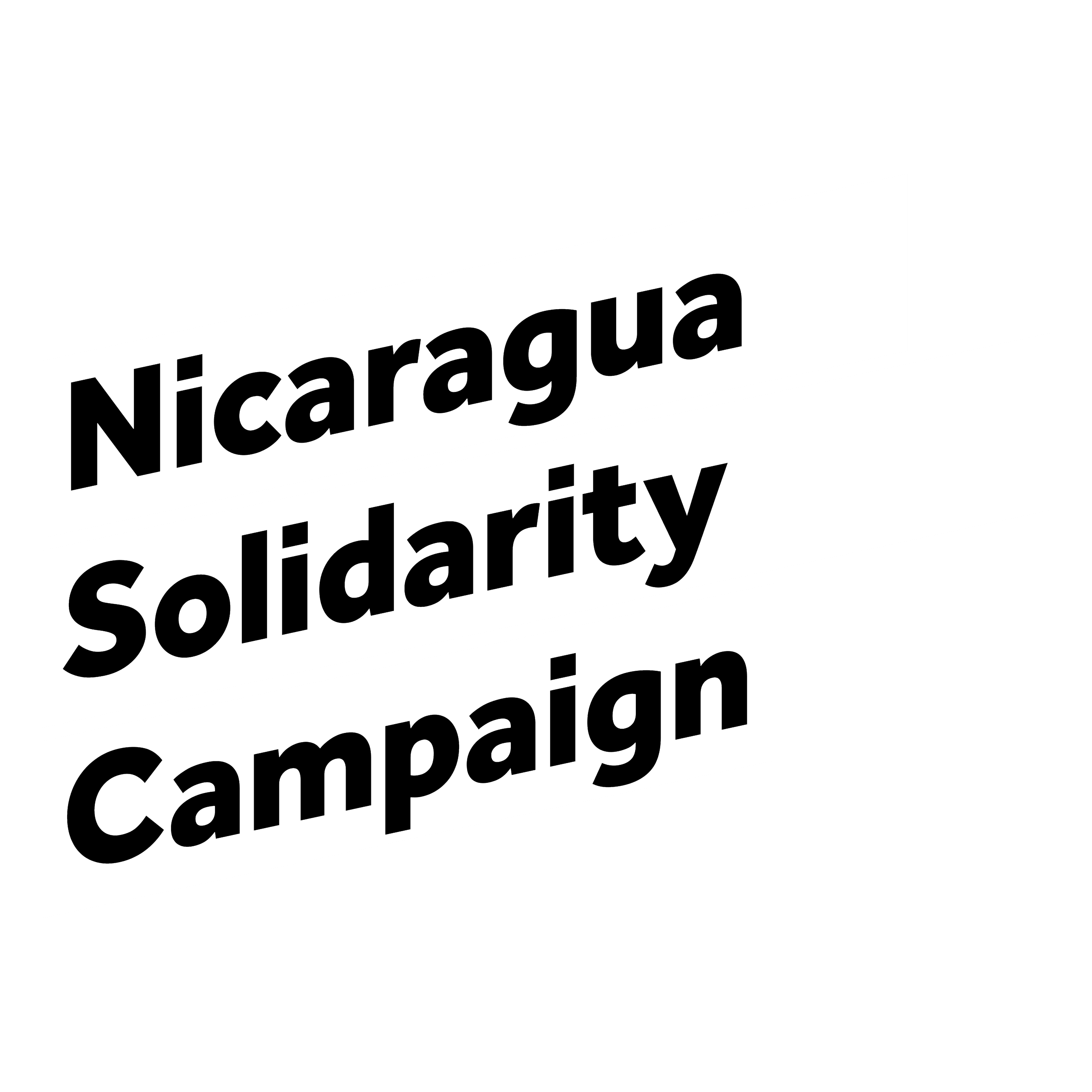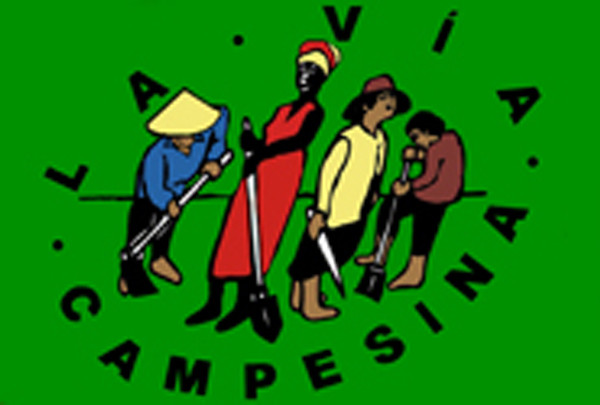
Wales, Nicaragua and Brazil: food sovereignty, agroecology & climate justice
What have three member organisations of La Via Campesina in apparently very different countries with populations varying from 3.2million to 212 million got in common?
This was the theme of a workshop organised by the Nicaragua Solidarity Campaign at the El Sueno Existe Latin America festival in Machynlleth on 5-7 August.
The climate crisis, COVID and war related disruptions to global food chains have resulted in grave threats to the lives and livelihoods of millions of people across the world.
These crises demonstrate how precarious our current transnational, corporate-driven food and agriculture systems are as well as being grossly exploitative of people and the environment.
There is another way: beyond corporate food capitalism
‘Transnational companies have turned food production and consumption into one of the greatest health hazards for people and the planet.’ Action Group on Erosion, Technology and Concentration (ETC)
For the past thirty years La Via Campesina (LVC), the global movement of rural workers, peasants and indigenous peoples made up of 82 organisations, has been not only denouncing the human and environmental destruction of global food corporations but also advocating and putting into practice solutions based on the principles of food sovereignty, land rights, agroecology, gender equality and social transformation.
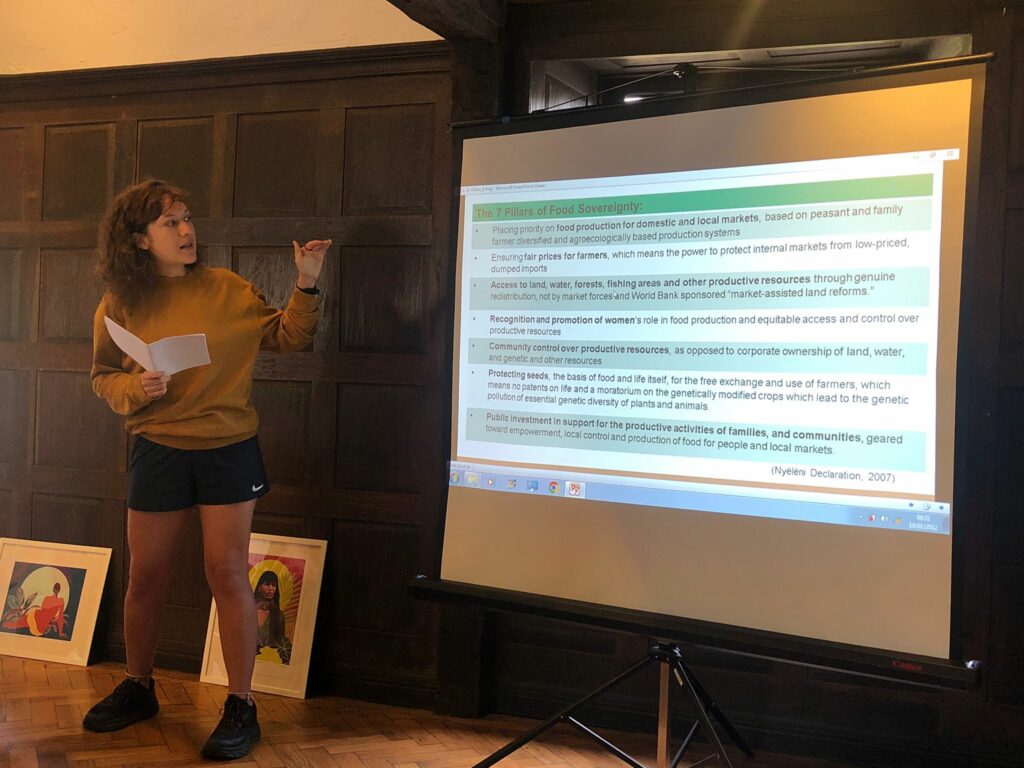
Brittany Oakes explains the seven pillars of food sovereignty
Brittany presented an overview of the global structure and the basic principles of La Via Campesina through highlighting the ‘pillars of food sovereignty’.
These are based on diverse, locally produced and marketed food grown using agroecological methods; protection of seeds; fair prices for farmers; access to land and community control of resources; recognition of the role of women; and public investment in ensuring food sovereignty.
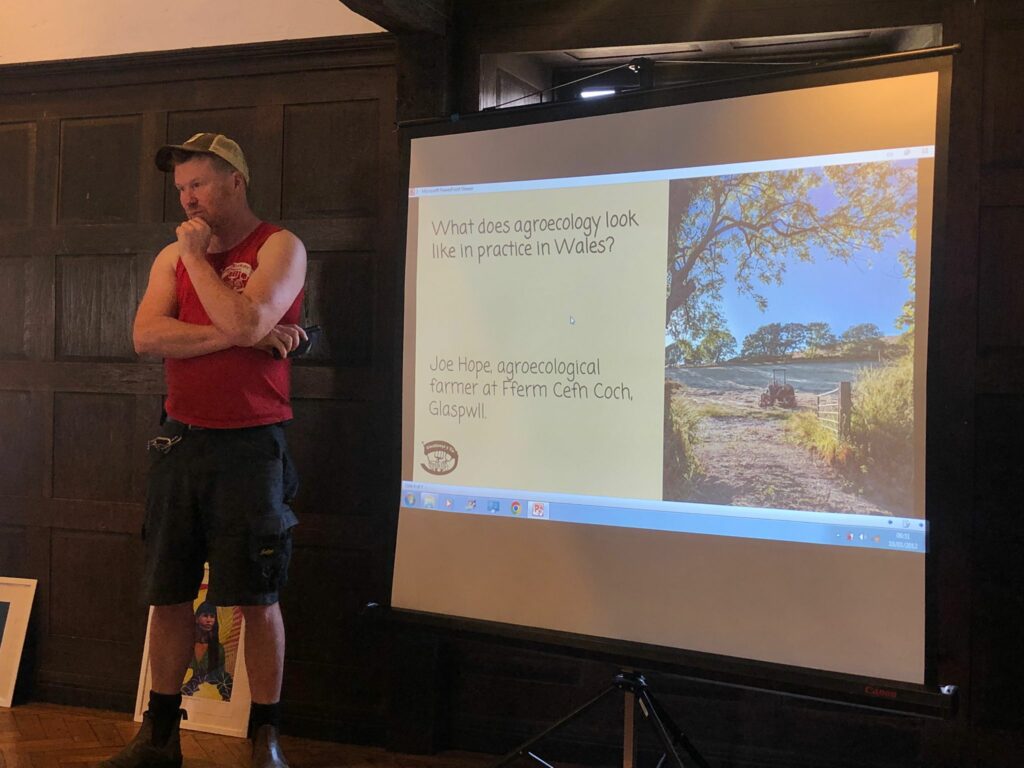
Joe Hope, Welsh agroecological farmer
Food sovereignty in practice in Wales, Nicaragua, and Brazil
Landworkers Alliance communications co-ordinator, Yali Banton-Heath, and agroecological farmer Joe Hope explained how food sovereignty is being put into practice in Wales. This includes building local food systems in the form of food hubs; gaining access to land for agroecological farmers and communities; and seed sovereignty.
In a video entitled ‘Nicaraguan women: transforming lives, protecting the land’ Lea Moncada and Eloisa Garcia of the Gloria Quintanilla women’s co-operative, told the story of their long struggle for basic human rights: to land, to education, to health and gender equality. They also explained how they are putting into practice agroecology and food sovereignty through ‘taking care of our farms, of our health, and future generations.’
The co-operative is a member organisation of the Nicaragua Rural Workers Association (ATC), a founder member of the LVC.
Fabetz, from the 1.2 million strong Landless Workers Movement (MST) in Brazil, explained how the movement has organised since 1984 through occupations of land that doesn’t fulfil a social function, to securing land rights through agrarian reform, to using the land to produce food based on the principles of food sovereignty and agroecology. All these elements are inseparable from the struggle for social transformation.
Fabetz went on to explain MST’s role during the pandemic in supplying donations of food to impoverished areas of towns and cities. These donations served not only to provide much needed food but also to help build rural – urban alliances.
During the pandemic the profits of transnational food companies have soared. At the same time the percentage of the population facing hunger has increased to almost half the population.
With presidential elections on 2 October this is a critical period in Brazil. The MST and other popular organisations and movements have joined forces to make sure that the current Trump – like government of President Bolsonaro is voted out.
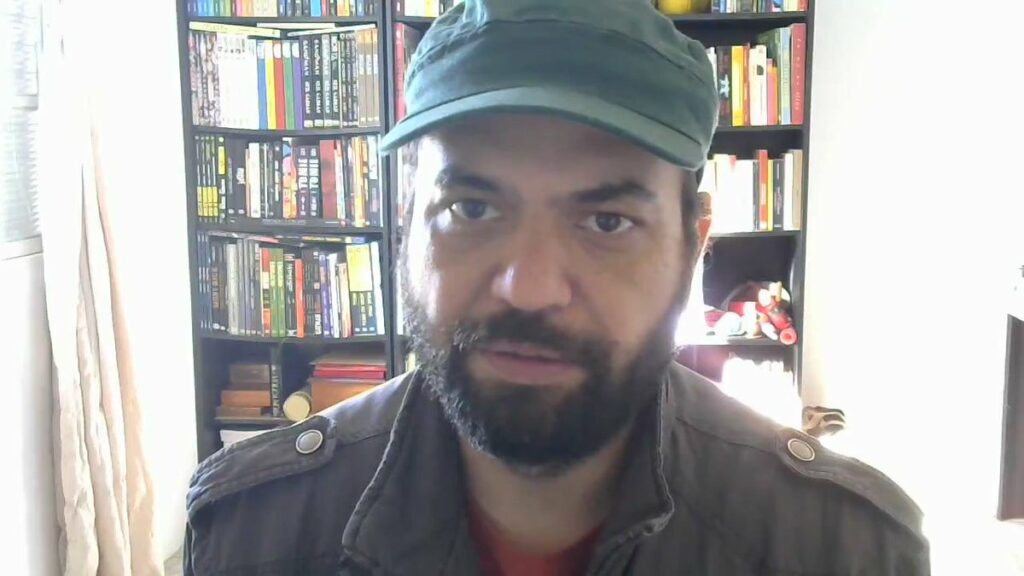
Fabetz, international relations collective of the MST, in a recorded presentation at the workshop.
Our thanks to all our speakers, to Doug Sprecht from the Environmental Network for Central America (ENCA) for facilitating the workshop and above all to the organisers and many volunteers involved in organising such a wonderful festival.
